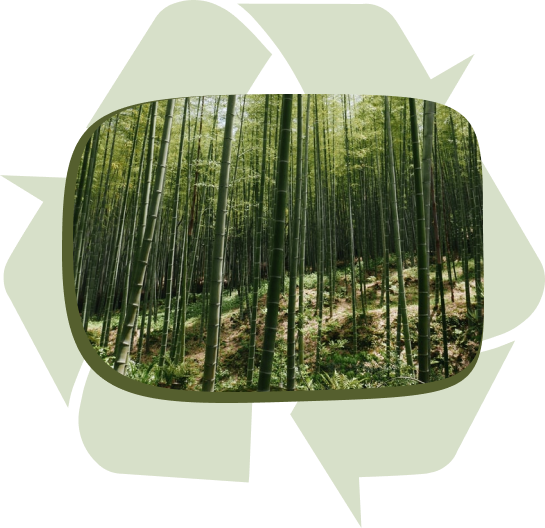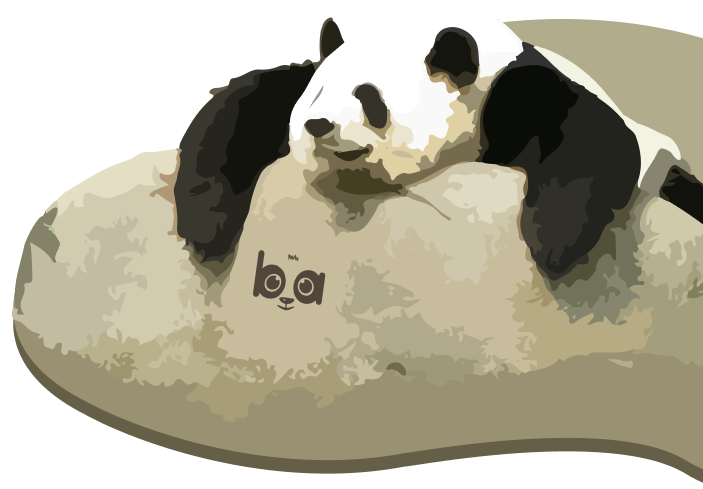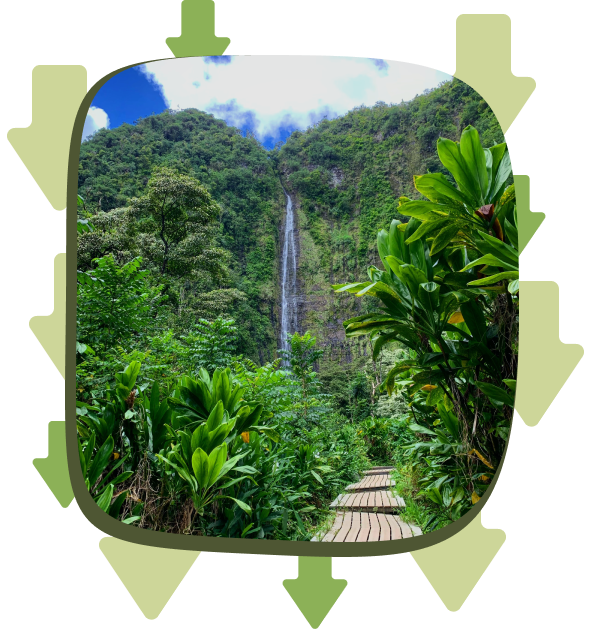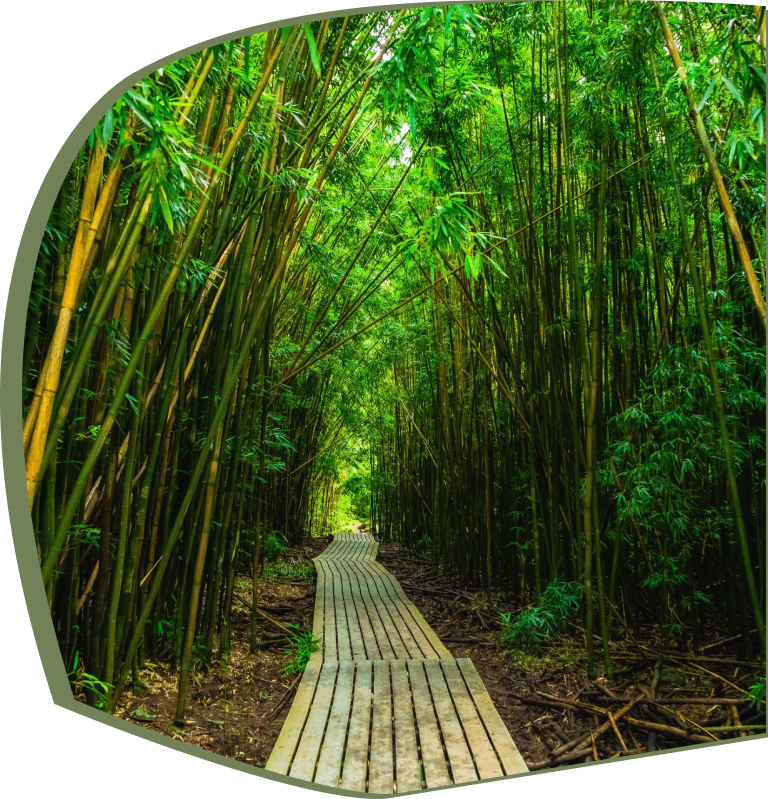
Bamboo as a renewable resource
With a maximum of 91 centimeters per day, bamboo is the fastest growing plant in the world. When harvested, the roots remain intact and the bamboo grows back from the same shoot, it is a self-fertilizing plant. Bamboo can be harvested within a few years for use as a raw material. This is impressive when bamboo is compared to other renewable resources for paper production. For instance, pine trees need 30 years and oaks even need 80 years to be able to be harvested.

Bamboo is free from pesticides and chemicals
Bamboo can be grown without pesticides, fertilizers, or chemicals. This is due to the powerful, natural anti-fungal agent kun / kunh in bamboo. This agent protects the plant during growth and in the production of the primary fiber for paper. Bamboi® has consciously chosen to have our paper made from 100% organic, unbleached rolls. As a result, Bamboi® is free from added chemicals and hypoallergenic.

Bamboo keeps the air clean
Bamboo is a powerful natural CO2 storage that keeps the air clean. Bamboo stores 35% more carbon and releases 35% more oxygen than trees. At the end of the day, every box of Bamboi saves 6.69 KG of CO2! An adult tree absorbs 21 KG of CO2 per year. Are you curious about how paper products made from bamboo have a positive impact on the environment?

Bamboo forests in China
In China, there are 208 different types of bamboo. The bamboo that Bamboi uses comes from Sichuan (China) and is fortunately not at all interesting to pandas. This species represents an area of 200,000 hectares. This is equivalent to 300,000 football fields. There is more than enough to use. And the more it is used, the better it is for the world! Due to the storage limit of bamboo, the grass species must be harvested so that the young shoots can absorb carbon again. The cut bamboo, full of stored CO2, we turn into toilet rolls and thus the carbon is kept out of the air as long as possible.
.svg?v=1708550450)
